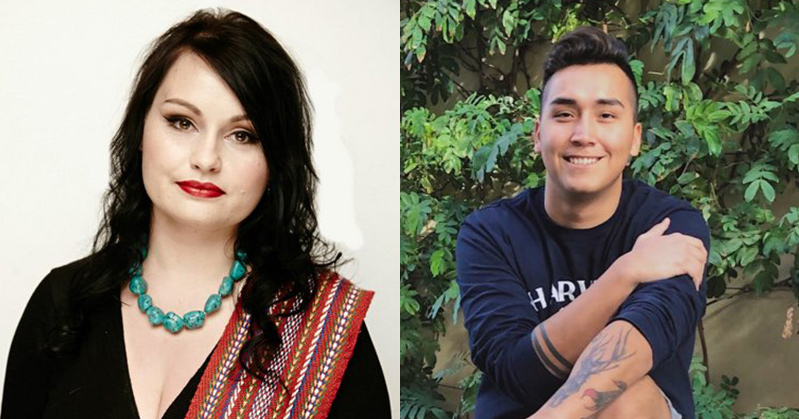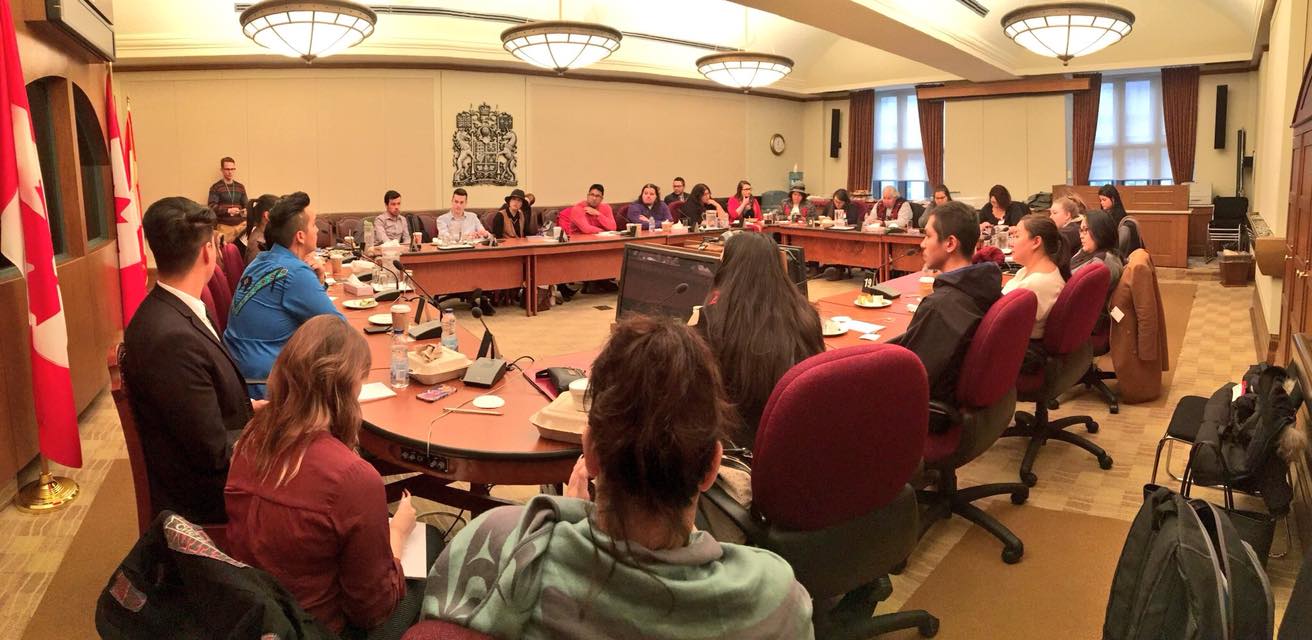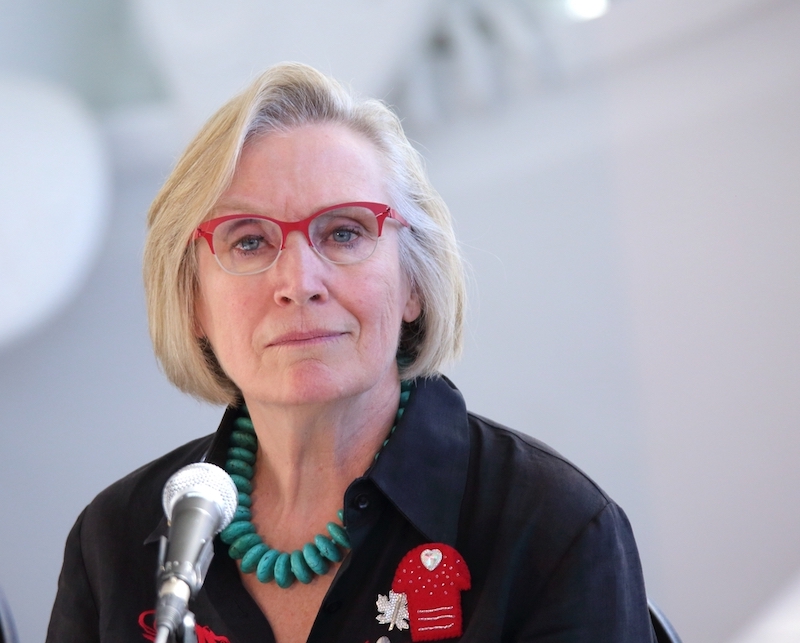The federal government’s response to the Truth and Reconciliation Commission’s Call to Action on Indigenous youth is “an epic fail,” says Gabrielle Fayant, a former government advisor.
Crown-Indigenous Relations Minister Carolyn Bennett announced this month that Canadian Roots Exchange, a Toronto-based charity, would get $15.2 million over three years to implement Call to Action 66 on youth reconciliation.
The Call to Action urged “multi-year funding for community-based youth organizations to deliver programs on reconciliation and establish a national network to share information and best practices.”
But Fayant, one of three youth advisors appointed in 2017 to guide the government’s response to the Call for Action, said Bennett’s announcement falls short of what is needed and ignores key recommendations of their report, titled “A Roadmap to the Truth and Reconciliation Commission Call to Action #66.”
The report called for the creation of an independent, community-based and Indigenous-led organization called Indigenous Youth Voices to hold the government accountable on Indigenous youth welfare in Canada.
“The money that we asked for, the $15.2 million, was specifically to start an organization to hold the government accountable,” said Andre Bear, another one of the three advisors.
Fayant agreed. “TRC [Call to Action] 66 was always about getting funds to grassroots for multi-year funding,” she said. “CRE has done a lot of great work around building relations between Indigenous and non-Indigenous youth, but that’s not what TRC 66 is about.”
Bear said the government initially wanted them to develop plans for a national Indigenous youth advisory council.
But the youth advisors rejected that approach, because there was no assurance it would be independent, he said. Future governments could easily turn the council into “puppets,” said Bear, who is from the Little Pine First Nation in Saskatchewan.

“We advised that the ‘TRC 66’ calls for a national network to share best practices, so we said we’d build that national network instead of the youth council,” he said.
Over 2.5 years, the three advisors travelled to Indigenous communities, administered a national survey, and organized a national youth gathering to get feedback on the best ways to address the diverse needs of Indigenous youth.
The government failed to implement their proposal in the 2018 budget.
Fayant, from the Fishing Lake Metis Settlement in Alberta, said the advisors received a call from ministry officials later that year in October 2018.
“One of the bureaucrats in her departments reached out to us and asked if Indigenous Youth Voices would mind working with the CRE [Canadian Roots Exchange] on TRC 66,” she explained. “We said yeah, that is not out of the question; CRE does really good work.”

But the two youth advisors said they didn’t hear anything more until March, two weeks before the 2019 budget.
“At that point, we received a call from some of Minister Bennett’s advisors and policy analysts. They said, ‘Great news — we’ve submitted for TRC 66 in the 2019 federal budget.’ And they submitted it so that CRE would be the administrator of the money.”
Fayant said Canadian Roots Exchange is widely respected for its work on reconciliation between Indigenous and non-Indigenous youth, through conferences, exchanges and workshops.
Both the former special advisors agree it’s not the right organization to implement Call to Action 66.
“Building Indigenous and non-Indigenous relations is only a small part of what reconciliation really is about,” said Fayant.
Bennett’s office did not respond directly to questions about the decision.
Today we have responded to the TRC’s Call to Action 66, which calls on the federal government to establish multi-year funding to community-based youth organizations, and to create a national network to share information and best practices.
— Carolyn Bennett (@Carolyn_Bennett) September 3, 2019
1/2 pic.twitter.com/CFbt18tQq3
Proud to support @CdnRoots as they support Indigenous youth across the country to lead Reconciliation efforts in their communities & organizations. This funding will build meaningful relationships, raise awareness and ensure that youth lead our country on this shared journey. 2/2
— Carolyn Bennett (@Carolyn_Bennett) September 3, 2019
In an emailed statement, a spokesperson wrote: “Our government is ensuring that the voices of Indigenous youth from coast to coast to coast are heard and incorporated into decision-making process.”
“We are proud to support the Canadian Roots Exchange as they support Indigenous youth across the country to lead Reconciliation efforts in their communities and organizations,” the statement said. “This funding will build meaningful relationships, raise awareness, and ensure that youth will lead our country forward on this shared journey.”
Fayant and Bear said they’re disappointed with the Liberal government’s lack of communication and consultation and its decision to ignore their report’s recommendations, which were based on the ideas of Indigenous youth from across the nation.
And they note their work was barely acknowledged in the government news release on the funding announcement.
Canadian Roots Exchange communications manager Eagleclaw Thom said that the organization is in no position to comment on the government’s decisions.
Max Fineday, the exchange’s executive director, was quoted in the government news release. He spoke at the University of Saskatchewan alongside Bennett during the funding announcement.
“Reconciliation in our lifetime is a worthy goal that is within our reach as a country,” the quote read. “In the Youth Reconciliation Barometer we conducted, youth across the country who went through a reconciliation program were much more knowledgeable and felt confident that reconciliation is possible. More youth reconciliation programs will help us achieve this goal, and that’s exactly what this investment will help us create.”
The third youth special advisor, Maatalii Aneraq Okalik from Nunavut, declined to be interviewed. ![]()

















Tyee Commenting Guidelines
Comments that violate guidelines risk being deleted, and violations may result in a temporary or permanent user ban. Maintain the spirit of good conversation to stay in the discussion.
*Please note The Tyee is not a forum for spreading misinformation about COVID-19, denying its existence or minimizing its risk to public health.
Do:
Do not: